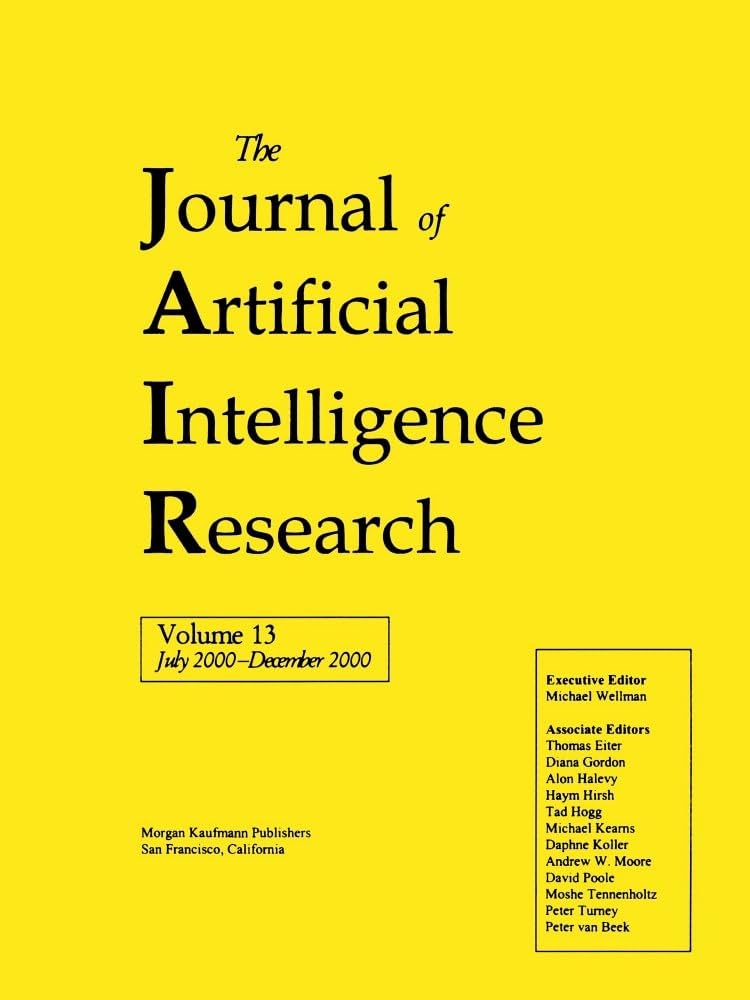基于可错证据的抽象论证框架中降低证据检索成本的研究
IF 4.5
3区 计算机科学
Q2 COMPUTER SCIENCE, ARTIFICIAL INTELLIGENCE
引用次数: 0
摘要
论证系统中的论证不能总是被视为独立的实体,需要考虑它们所依赖的证据片段。这些证据可能必须从数据库或网络等外部来源中检索,并且每次检索证据的尝试都伴随着相关的成本。此外,某一证据可能在某一特定情况下可用,而在其他情况下则不可用,这是事先不知道的。因此,系统的论证机制可以使用的活动论证(其全部证据都是可用的)的集合可能因场景而异。在这项工作中,我们考虑了一个具有可错证据的抽象论证框架来解释这些问题,并提出了一种启发式措施,作为可接受性演算的一部分(特别是用于构建修剪的辩证树),目的是最大限度地减少推理过程中涉及的论据的证据检索成本。我们提供了一个算法解决方案,针对两个基线进行了经验测试,并正式显示了我们方法的正确性。本文章由计算机程序翻译,如有差异,请以英文原文为准。
Towards Evidence Retrieval Cost Reduction in Abstract Argumentation Frameworks with Fallible Evidence
Arguments in argumentation systems cannot always be considered as standalone entities, requiring the consideration of the pieces of evidence they rely on. This evidence might have to be retrieved from external sources such as databases or the web, and each attempt to retrieve a piece of evidence comes with an associated cost. Moreover, a piece of evidence may be available in a given scenario but not in others, and this is not known beforehand. As a result, the collection of active arguments (whose entire set of evidence is available) that can be used by the argumentation machinery of the system may vary from one scenario to another. In this work, we consider an Abstract Argumentation Framework with Fallible Evidence that accounts for these issues, and propose a heuristic measure used as part of the acceptability calculus (specifically, for building pruned dialectical trees) with the aim of minimizing the evidence retrieval cost of the arguments involved in the reasoning process. We provide an algorithmic solution that is empirically tested against two baselines and formally show the correctness of our approach.
求助全文
通过发布文献求助,成功后即可免费获取论文全文。
去求助
来源期刊

Journal of Artificial Intelligence Research
工程技术-计算机:人工智能
CiteScore
9.60
自引率
4.00%
发文量
98
审稿时长
4 months
期刊介绍:
JAIR(ISSN 1076 - 9757) covers all areas of artificial intelligence (AI), publishing refereed research articles, survey articles, and technical notes. Established in 1993 as one of the first electronic scientific journals, JAIR is indexed by INSPEC, Science Citation Index, and MathSciNet. JAIR reviews papers within approximately three months of submission and publishes accepted articles on the internet immediately upon receiving the final versions. JAIR articles are published for free distribution on the internet by the AI Access Foundation, and for purchase in bound volumes by AAAI Press.
 求助内容:
求助内容: 应助结果提醒方式:
应助结果提醒方式:


